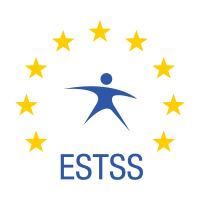
Webinar V: Trauma-Informed-Care and Trauma-Informed-Organizations
Datum/Tid
16 dec 2020
17:00 - 20:00
Länk till evenemanget
Till webinar-kalender
ESTSS Task Force on Trauma-Informed-Organisations will present a 2-part webinar on how to implement and develop trauma-informed-care principles in organisations, communities and policy strategies. The webinar will also highlight how the Trauma-Informed-Care paradigm can play a critical role in informing health and social systems at times of crisis like the COVID-19 outbreak. The webinar is organised into an-hour introductory part to examine foundations of the trauma informed paradigm and to provide an understanding and language to begin to consider how the emerging science behind trauma can inform provision of care to maximize short- and long-term health outcomes. The second (advanced) part of the webinar will address the characteristics of trauma-informed organisations, the promotion of a cultural shift and related barriers within different sectors.
Aims of the webinars
To raise awareness and knowledge about systemic and organizational approaches to psychological trauma so that professionals involved in the care of traumatized populations not only could be able to recognize and respond to traumatic stress but they would also be more knowledgeable about the impact of trauma on organizational functioning and about trauma-informed policy strategies. Organizations may need to change their culture, fundamental values, and operations to foster a safe, trusting environment to facilitate trauma healing and prevention. The webinars address the development, implementation, and continuous review of organizational policies that infuse trauma-informed practices throughout all levels of the organization.
Topics
All the domains of trauma-informed care principles and the characteristics of trauma-informed organizations will be covered to foster the understanding of how to nurture a trauma-informed and responsive workforce, evidence-based and emerging best practices, creating safe environments, community outreach and partnership building, and ongoing performance improvement and evaluation. More speci cally the covered topics are:
Trauma as a public mental health issue;
Principles of trauma informed care;
Core competencies – Putting Principles into actions:
– Choice, Trust and Connection
– Building a trauma informed culture
Systemic View of Healing Trauma, organizational assessment and the facilitation of organizational change Building Trauma Informed Principles into Policy and Processes
Attending to Staff Safety and Secondary Trauma: Understanding Vicarious Trauma and Secondary Traumatic Stress
Research into Trauma informed care and trauma informed organizations
Learning outcomes
Participants will understand the various ways trauma manifest in our own lives, the lives of our colleagues, and those of our patients. Furthermore, they will acquire knowledge about how to practically implement trauma-informed-principles and to favor the development of a trauma-informed-view within the organizations.
Target audience
Leaders in health and social care, trauma, and trauma-informed care (TIC), psychologists, psychotherapists, social workers
Speakers
Dr. Vittoria Ardino is a Psychotraumatologist and holds a Master in Healthcare Management, Economics and Policy. She is the President of the Italian Society of Trau-matic Stress Studies. She has an established track record in psychotraumatology. Speci fically, her research investigated the interlink between early trauma and later adverse outcomes, in both victims and perpetrators. Recently, her research interests has shifted to policy research. She is interested in integrating her expertise on trauma with mental health policy and health economics to challenge service delivery for traumatized children. She evaluated trauma-informed care in youth mental health services across Italy and developed trauma-related economic models of child maltreatment and child migration. Her publications focus on the causes of PTSD development, trauma-informed services and on the impact of PTSD on re-offending risk. She has edited two books on childhood trauma and PTSD. Vittoria has presented at many conferences on child maltreatment and trauma as an invited speaker.
Dr. Noreen Tehrani was qualifi ed as a psychologist in 1983 and has achieved chartered status in Occupational, Counselling, Health and Coaching Psychology. The diversity of her training and experience has helped her to deal with a wide range of psychological problems which reduced employee well-being and organisational effectiveness. Working with the organisations affected by Omagh Bomb, Paddington and Potters Bar rail crashes, World Trade Centre and the 7th July terrorist attacks in London has been infl uential in the development of her crisis, disaster and business continuity trauma management programmes. Over the past fifteen years she has developed and used a series of assessment and rehabilitation interventions which have reduced sickness absence and achieved signi cant fi nancial bene fits for the organisations.